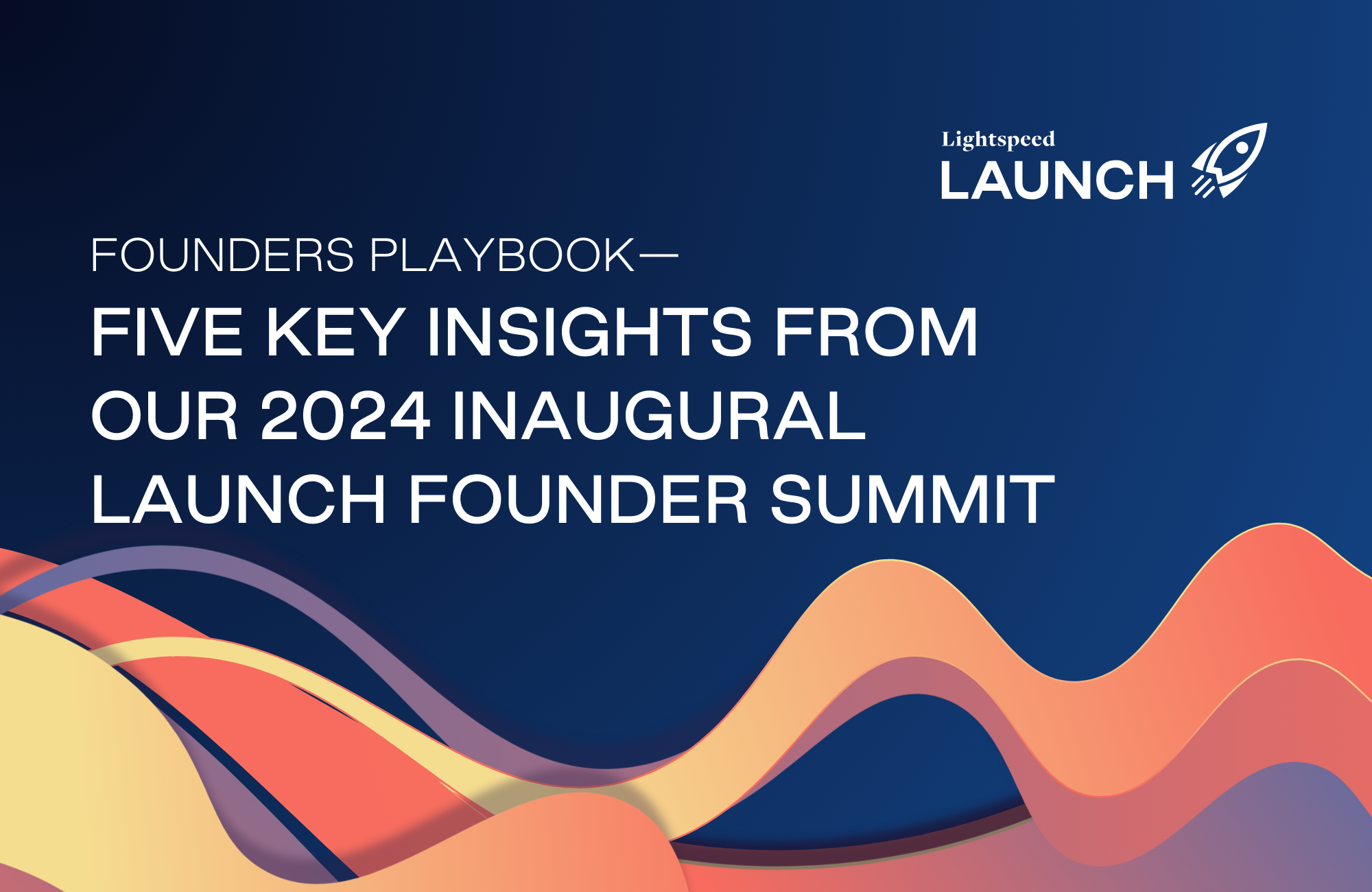
The journey of an early-stage founder is full of challenges. A great idea and ambition alone rarely guarantee success–building a thriving business requires the knowledge and team to overcome countless obstacles. At Lightspeed, we’re committed to helping founders anticipate and tackle these challenges, offering expert guidance at pivotal moments that shape their company’s future.
At our recent Launch Founder Summit, we brought together over 60 enterprise and B2B-focused founders to network and gain actionable insights from some of the most successful operators in the industry. The goal was simple: to share hard-earned wisdom on overcoming key hurdles and preparing for the challenges founders face as they scale.
Our 2024 Launch Founder Summit featured an impressive lineup of speakers:
- Tim Porthouse, Performance Coach to Startup CEOs
- Arvind Jain, Co-Founder & CEO of Glean
- Joshua Bloom, GP, 49 Palm Ventures, former Partner at Simon-Kucher
- Madhavan Ramanujam, GP, 49 Palm Ventures, Author of Monetizing Innovation
- Maria Latushkin, GVP, Technology and Engineering at Albertsons Companies
- Bryan Wise, CIO at 6sense
- Greg Schott, Investor, Board Member, and former CEO of MuleSoft
Throughout the content-packed afternoon, these leaders addressed the most critical challenges founders face, covering key topics like time management as a CEO, navigating investor relationships, achieving the right product-price fit, and building high-performing teams.
Here are five key insights that stood out:
1. Mastering the Balance Between Founder Mode and Manager Mode
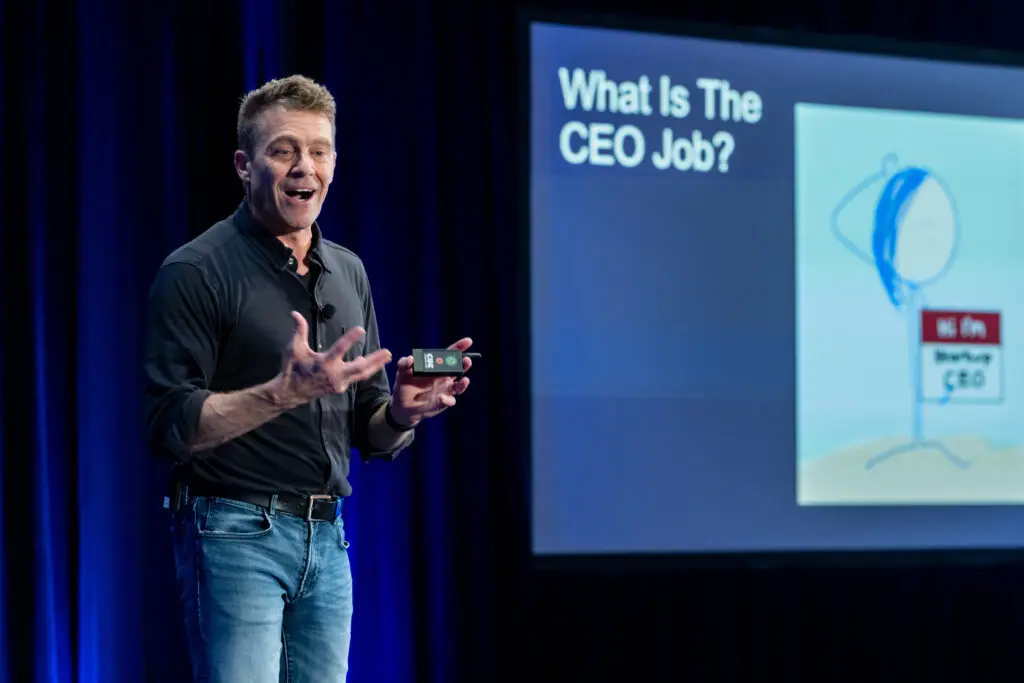
The most valuable resource for startup CEOs isn’t money–it’s time.
At some point, every founder faces the dilemma: Should I stay in “founder mode,” immersed in every detail, or transition to “manager mode,” delegating responsibilities to a capable team? Tim Porthouse says the answer is both, but they must be used wisely and at the right times.
While a CEO’s to-do list may seem endless, the most critical responsibility is crafting and communicating a clear vision–one that inspires employees, customers, investors, and the board. This vision forms the foundation for strategic decisions, fundraising efforts, and shaping company culture. However, to do all that effectively, CEOs need to protect a key asset: time.
“The best startup CEOs have a surprising amount of white space in their calendars,” says Tim. “They need time to think. When I work with leaders, the first step is clearing time for what truly drives 100x growth.”
Founder Call to Action: Take control of your time by starting small. Identify one recurring meeting to delegate and check in asynchronously. Gradually reduce meetings to focus only on mission-critical, high-impact discussions. Give yourself the space to think, strategize, and focus.
2. The Key to Fundraising? It’s All About Vision
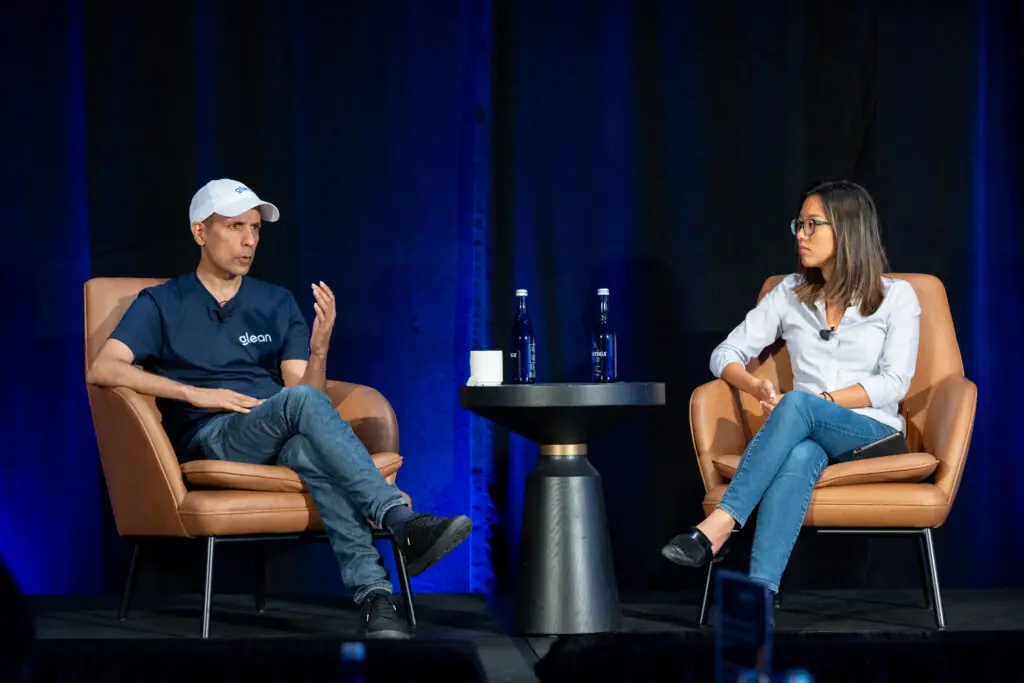
Arvind Jain may not consider himself a fundraising expert, but the results tell a different story. As CEO and co-founder of Glean, Arvind recently secured $260 million in a Series E round. Prior to that, he co-founded Rubrik, which raised over $500 million before its IPO in 2024.
What’s his secret? A clear and compelling vision that resonates with investors.
While many founders wait to fundraise until they have a working prototype, Arvind took a different approach–starting investor conversations before writing a single line of code. His advice? Focus on deeply understanding the problem you’re solving and clearly articulating why you’re the right person to solve it.
“It’s better to invest your energy in understanding the problem you’re tackling,” says Arvind. “The right partners will believe in your ability to deliver the solution.”
Founder Call to Action: Don’t wait for a perfect product–start by mastering your vision. Clearly define the problem you’re solving and confidently share your story with investors from day one.
3. The Overlooked Importance of Product-Price Fit
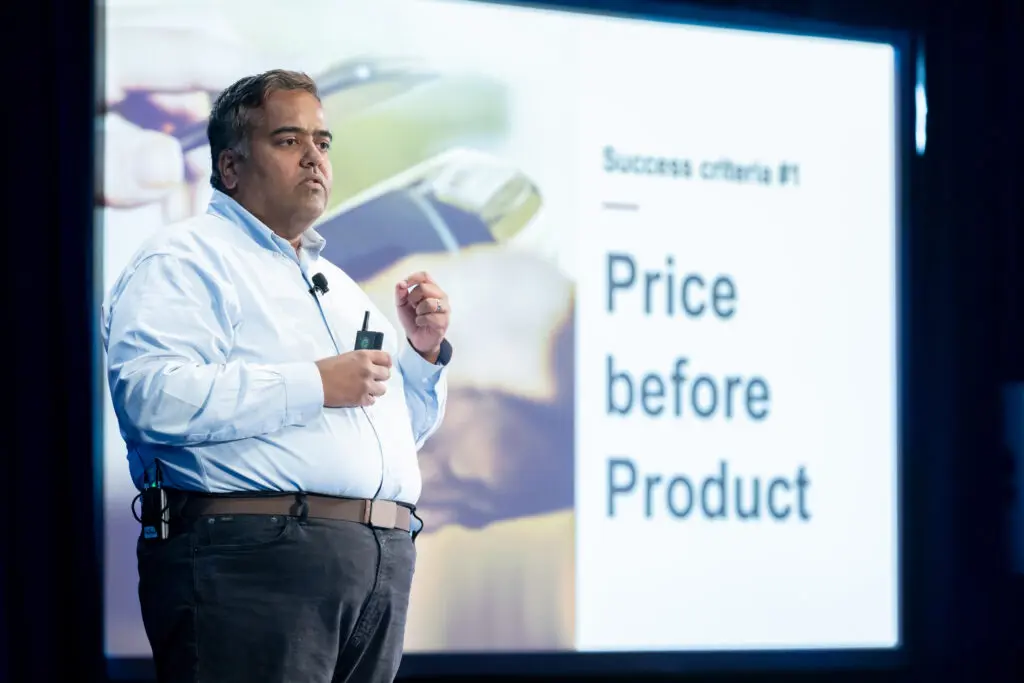
Building a great product is only half the battle–you also need to know what customers are willing to pay for it.
Madhavan Ramanujam, co-author of Monetizing Innovation, highlights a critical yet often overlooked factor: nearly 75% of product innovations fail, not due to poor product-market fit but because of pricing missteps. Entrepreneurs frequently underprice their offerings or set prices too high, either leaving money on the table or driving customers away.
“Many companies fail to charge what their products are truly worth,” says Madhavan. “You can build an exceptional product, but to scale successfully, you must understand your customers’ willingness to pay.”
Founder Call to Action: Building a great product is just the start–make sure you know what your customers are truly willing to pay. Conduct customer interviews, test different pricing strategies, and use data to identify the optimal pricing model for your specific business.
4. Cracking the Enterprise Sales Code
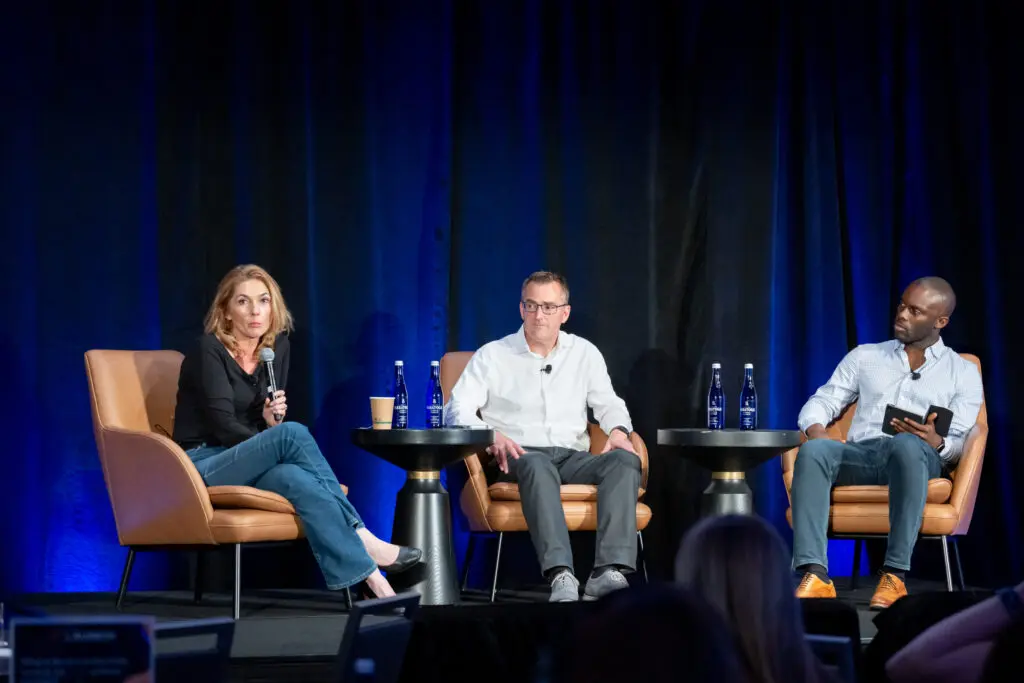
Breaking into enterprise sales can be tough, but it’s not impossible with the right approach.
According to Bryan Wise, CIO of 6sense, a “no” from a technology leader today doesn’t mean it’s a “no” forever. Success in enterprise sales requires patience, persistence, and a strong understanding of the value your product delivers.
“When I say no, it doesn’t necessarily mean no forever–it might just mean ‘not right now,'” says Bryan. “Be prepared, stay persistent, and clearly communicate your business value.”
Maria Latushkin of Albertsons reinforces this, advising founders to be transparent about what their product can and can’t deliver. Honesty not only builds trust but also paves the way for future partnerships.
Founder Call to Action: Identify your key enterprise targets and invest time in understanding their pain points. Customize your pitch to meet their specific needs, follow up consistently, and be transparent about your product roadmap. Focus on building long-term relationships–a “no” today often just means “not right now.”
5. Building Teams That Drive Success
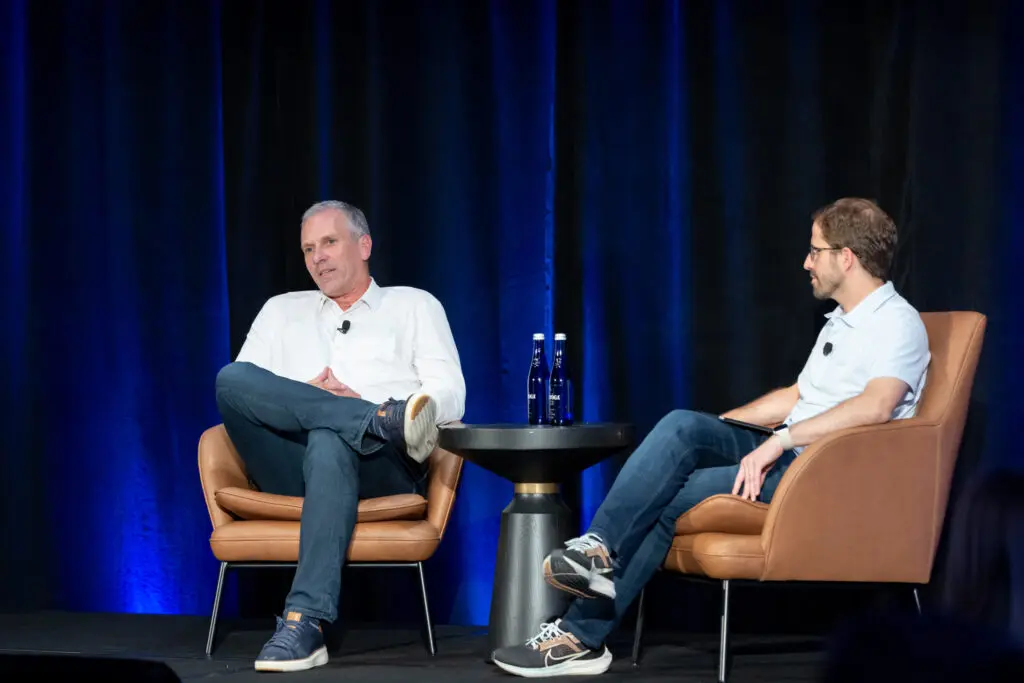
The success of your company hinges on the quality of your team–so hiring wisely is critical.
When Greg Schott became CEO of MuleSoft in 2009, the company had just 20 employees. By the time he stepped down a decade later, MuleSoft had scaled to 1,700 employees and $800 million in revenue. Greg credits much of that success to the company’s commitment to talent. Early on, he personally interviewed every hire to ensure they were not just good, but exceptional.
“Good isn’t good enough,” says Greg. “We sought out talent that could elevate the entire company and continually raise the bar.”
Founder Call to Action: Be relentless in your hiring process–don’t settle for “good enough.” Look for team members who can elevate your company, and invest the time upfront to ensure they’re the right fit. The right talent will raise the bar and drive your company’s long-term success.
We’re excited to continue hosting the Launch Founder Summit annually, providing founders with the tools, insights, and network they need to build generational companies.
Authors




